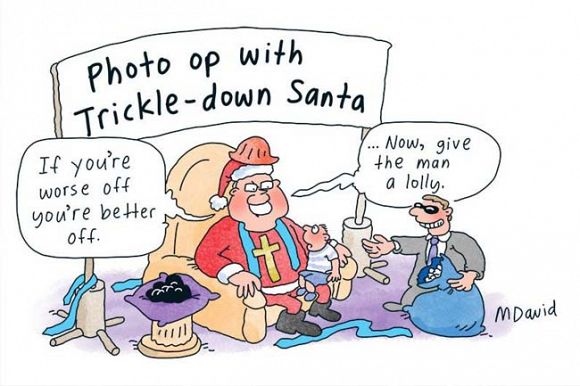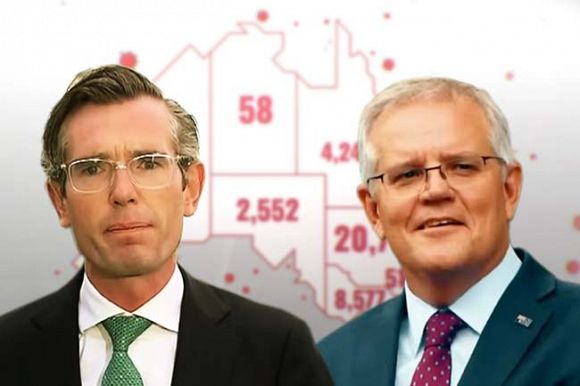Mainstream news media reported yesterday a “clash” between another medical practitioner and me on social media. “Clash” really overstates the situation.
‘Ignore this individual’, he tweeted. Really?
It was more of an old-fashioned insult. An attempt at humiliation or intimidation, perhaps? A metaphorical shoe thrown in my direction?
To say I had a lot worse thrown at me during two decades of advocating for marriage equality would be an understatement.
Life experience has taught me that in these types of situations, the best thing we can do is to concentrate on the substance of the issue.
There are some things that cannot be ignored though, at least not for long.
One is the scheduled return of children and teachers to classrooms in just a few weeks. This was the very topic of the video I posted a few days ago that created the ‘Ignore this individual’ response.
Lives are at risk. Parents are worried. Teachers are worried. We are in the middle of a COVID-19 pandemic which is yet to reach a peak of this current wave.
Many people who catch this virus do experience “mild” symptoms. However, we have been warned by the World Health Organisation not to treat Omicron as “mild”. Of course, the Delta variant is still circulating, too. You don’t get to pick your variant.
Some people become severely unwell, some end up in intensive care and some die, unvaccinated and vaccinated.
Tragically, we are seeing severe illness and some deaths amongst children here in Australia.
International experience warns us about the possibility of multisystem inflammatory syndrome and the concern that long COVID may affect as many as one in seven children.
The long-term implications of even mild COVID infection for a child, including long COVID, are still largely unknown.
One recent study found that a COVID infection substantially increased risk of diabetes in children under 18.
I have spoken to a number of doctors, parents and teachers about their concerns for their children’s safety and the logistics of sending children back to the classroom at the expected peak of a wave of combined Delta and Omicron COVID variants.
There are several reasons why delaying a return to classroom learning would be a wise move.
Classrooms are crowded and most are poorly ventilated. Those problems could be mitigated with CO2 monitoring, improved ventilation and air purifiers, but a return to school should be delayed until that work has been completed.
Primary school children are still unvaccinated and there have been supply issues with the vaccine, and that means most children will not have even had their first dose of vaccination before the start of term in just a few weeks.
GPs are trying to schedule older patients for boosters as well as make time in busy clinics to accommodate the demand for bookings for children to be vaccinated.
Some children had appointments, but the vaccines had not arrived by Friday of last week, so many parents found their children’s appointments were cancelled or delayed for several weeks.
Even if a child is vaccinated, they can still transmit the infection to teachers, to parents and grandparents or other caregivers.
Some of those adults could be medically vulnerable.
If children become sick, their caregivers have to stay home from work during their isolation period and we have already seen the economic impact of this.
If caregivers become sick, who looks after the sick children?
There will be logistical problems getting all teachers to have a third dose of COVID vaccine before the start of term.
We do not yet know how long the protection from the third dose will last, so we need to be planning for the “Vaccines Plus” model of reducing transmission including:
- having fitted N95 masks available to be worn by all teachers, staff and children at school;
- air quality improvements;
- increased ventilation;
- improved testing, contact tracing, isolation of cases and close contacts;
- a redefinition of “close contact” based on scientific evidence; and
- other measures.
With the high numbers of people in the NSW community with COVID and with those numbers expected to continue to rise, many teachers may have COVID or become close contacts and there will be a shortage of teachers able to work. I am told it is extremely difficult to get casual teachers.
Sending children back to the classroom at the peak of a pandemic makes absolutely no sense. We have seen what “letting it rip” has done to business, supermarket deliveries and other supply chains, vulnerable people in the community and the health system.
OzSAGE, the multidisciplinary group of independent experts on COVID, today called for the postponement of face-to-face schooling for primary and secondary students to enable double vaccination of children; to avoid the late January peak of the present wave (per NSW modelling) and to ensure indoor air standards are able to be met at all schools.
OzSAGE also recommended the inclusion of hybrid learning or alternative arrangements for vulnerable children requiring supervision and emotional support, as well as making sure that all children have access to appropriate I.T. provisions and support.
The starting point for any discussion about schools is the safety and wellbeing of children, teachers and other school staff and the families they all go home to. If that means a few weeks delay for a safer return to the classroom, then that is a reasonable precaution under the extraordinary circumstances we face.
Professor Kerryn Phelps AM is an IA columnist, general practitioner, advisory board member and conjoint professor at NICM Health Research Institute, a Climate 200 advisory panel member, a member of OzSAGE and a City of Sydney Councillor. You can follow her on Twitter @drkerrynphelps.
Related Articles
 This work is licensed under a Creative Commons Attribution-NonCommercial-NoDerivs 3.0 Australia License
This work is licensed under a Creative Commons Attribution-NonCommercial-NoDerivs 3.0 Australia License
Support independent journalism Subscribe to IA.
















